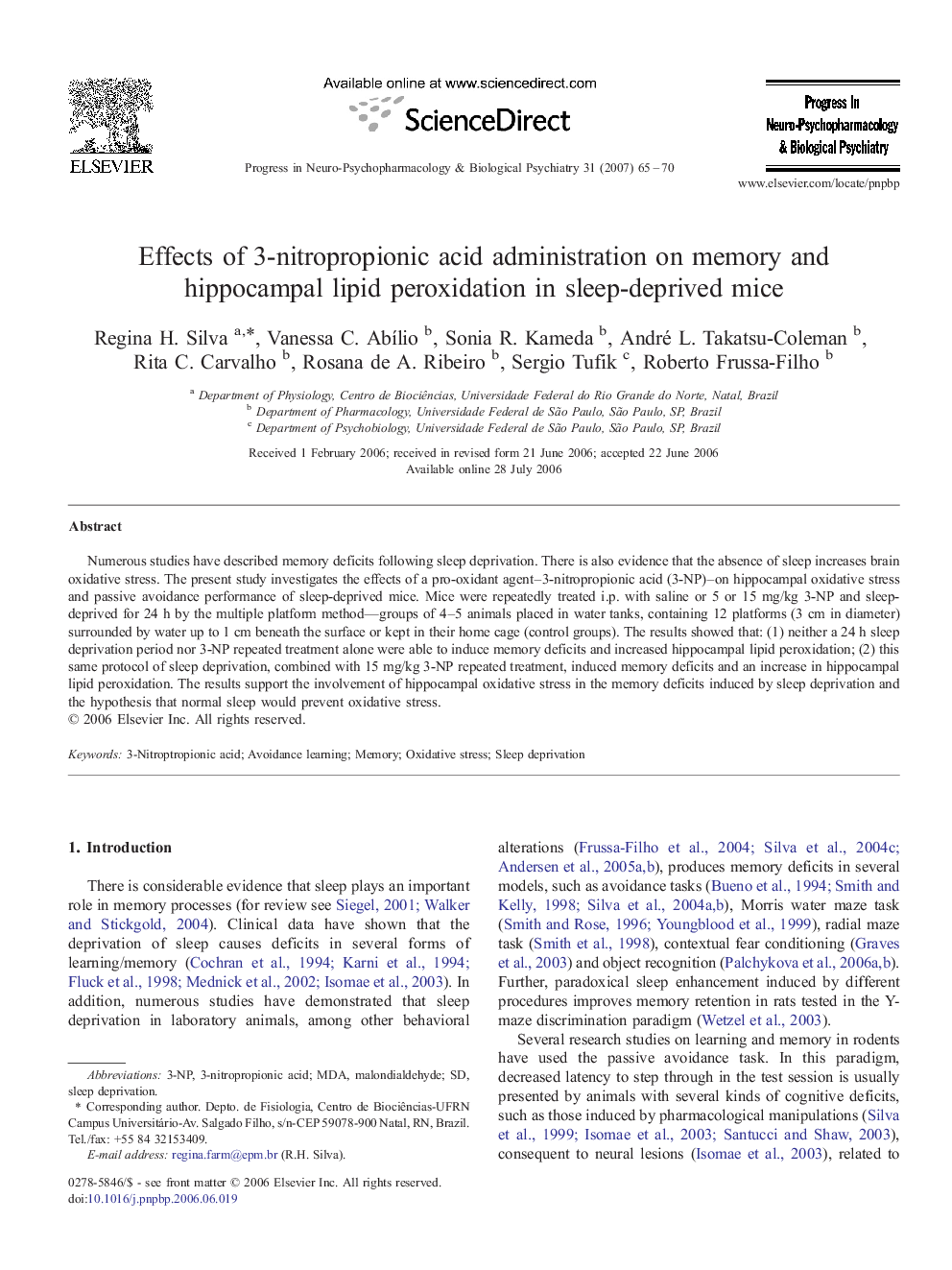| Article ID | Journal | Published Year | Pages | File Type |
|---|---|---|---|---|
| 2566012 | Progress in Neuro-Psychopharmacology and Biological Psychiatry | 2007 | 6 Pages |
Abstract
Numerous studies have described memory deficits following sleep deprivation. There is also evidence that the absence of sleep increases brain oxidative stress. The present study investigates the effects of a pro-oxidant agent-3-nitropropionic acid (3-NP)-on hippocampal oxidative stress and passive avoidance performance of sleep-deprived mice. Mice were repeatedly treated i.p. with saline or 5 or 15Â mg/kg 3-NP and sleep-deprived for 24Â h by the multiple platform method-groups of 4-5 animals placed in water tanks, containing 12 platforms (3Â cm in diameter) surrounded by water up to 1Â cm beneath the surface or kept in their home cage (control groups). The results showed that: (1) neither a 24Â h sleep deprivation period nor 3-NP repeated treatment alone were able to induce memory deficits and increased hippocampal lipid peroxidation; (2) this same protocol of sleep deprivation, combined with 15Â mg/kg 3-NP repeated treatment, induced memory deficits and an increase in hippocampal lipid peroxidation. The results support the involvement of hippocampal oxidative stress in the memory deficits induced by sleep deprivation and the hypothesis that normal sleep would prevent oxidative stress.
Keywords
Related Topics
Life Sciences
Neuroscience
Biological Psychiatry
Authors
Regina H. Silva, Vanessa C. AbÃlio, Sonia R. Kameda, André L. Takatsu-Coleman, Rita C. Carvalho, Rosana de A. Ribeiro, Sergio Tufik, Roberto Frussa-Filho,
